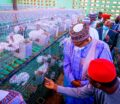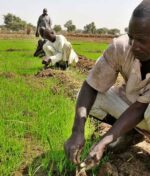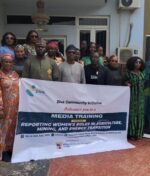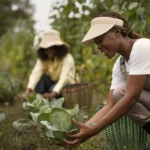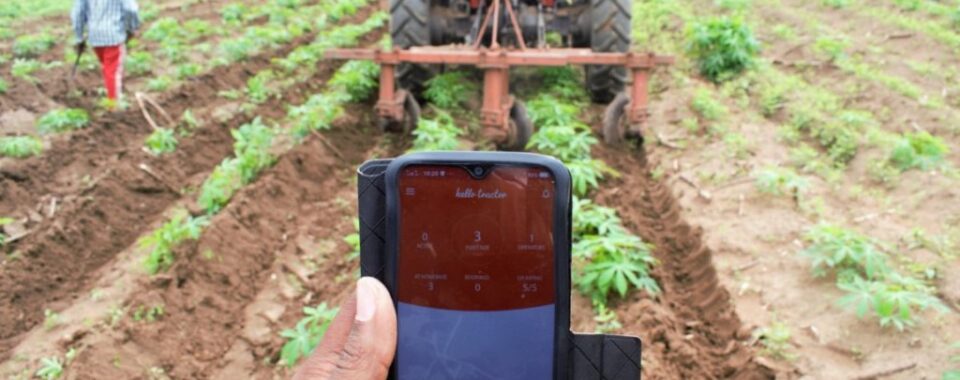
A leading agricultural entrepreneur has outlined how Nigerian farmers can establish profitable cassava processing plants with an initial investment of ₦4-5 million, potentially generating annual revenues of ₦100 million.
During a capacity building conversation with agricultural consultant Seyi Oyenuga, the farmer who leads the SecureFarmer project shared detailed insights into sustainable cassava processing technology and market opportunities in Nigeria.
Equipment Breakdown and Costs
The entrepreneur provided a comprehensive breakdown of essential equipment needed for small-scale cassava processing operations. “A farmer who doesn’t have the financial capacity to put this up–for example, what is the basic requirement for someone to start a cassava processing plant like this, not at this scale but a smaller scale?” he explained during the interview.
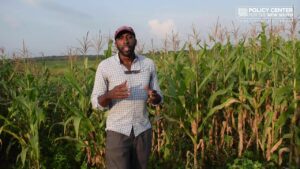
SecureFarmer project lead, Seyi Oyenuga
The core equipment requirements centre around three key components:
Frying Equipment: “If you’re going to fry garri, we suggest a semi-automatic system like we use. That’s where you’re going to be able to get the most consistent product, both in quality and cost.” He noted that while a quality fryer costs around ₦3 million when purchased outright, local fabrication can reduce costs while maintaining efficiency. “If you take the time to fabricate one locally, you can do it for under that, and it still does the job–faster, smoother, and cleaner–than a manual fryer.”
Grating Systems: “The other components are the grater–you can get a good one for under 200,000 naira if you choose the right scale,” bringing the total investment to approximately ₦3.2 million.
Dewatering Equipment: “Then comes the dewatering step. Presses for this stage cost anywhere from ₦200,000 to ₦300,000.”
The final calculation reveals that “with at least ₦4 to 5 million, a farmer who can access a loan can start a cassava processing plant anywhere in Nigeria.”
Market Opportunities and Quality Standards
The SecureFarmer project leader emphasised the importance of quality in Nigeria’s cassava market. “There are opportunities when you produce higher quality. This country is very particular about the final quality,” he explained. “People have very different tastes and preferences. If you’re producing something clean, dry, tart, and tasty, you’ll have customers lining up.”
He revealed that premium garri commands exceptional prices: “The best quality garri in Nigeria sells for ₦10,000 per 50kg bag. No stones, no sand–just dry, tart, and tasty. Amazing.”
Addressing Farmer Challenges
The entrepreneur acknowledged persistent challenges facing Nigerian farmers, particularly regarding land access. “They complain a lot about land–especially young farmers. Are you doing anything to help them?” When asked about solutions, he responded: “Yes, we are. We’re really aiming our products and services at young farmers.”
The SecureFarmer Program offers comprehensive support: “We have a ‘Secure Farmer Program’ that we’re promoting with some NGOs. We provide land access, mechanisation, and high-quality inputs on credit to help farmers grow to their full potential.”
Financial Projections and Business Viability
The processing operation has demonstrated strong financial performance. “Depending on the volume–we’ve been shifting from garri to cassava flour. This year, we’re expecting about ₦100 million in revenue in the second half,” the entrepreneur disclosed.
Profit margins remain healthy: “Profit-wise, we’re looking at 20 to 30% of that. So yes, you can survive. You’re in business for life.”
Farmer Resistance to Innovation
Despite the clear financial benefits, the entrepreneur noted resistance to technological adoption among traditional farmers. “But most farmers stick with what they know, even if they make some money–they don’t want to evolve. Why? I think it’s a lack of understanding of the market.”
The SecureFarmer project continues to address this challenge through education and capacity building programs, working with NGOs to demonstrate the viability of mechanised cassava processing across Nigeria.
The conversation concluded with acknowledgment of the significant market potential, with the interviewer noting: “This is brand new information that many are hearing for the first time.”


